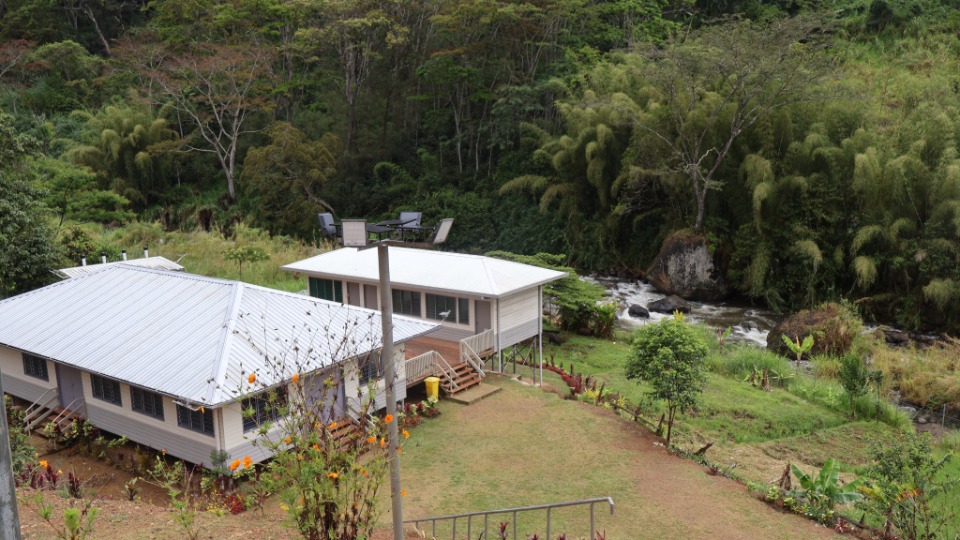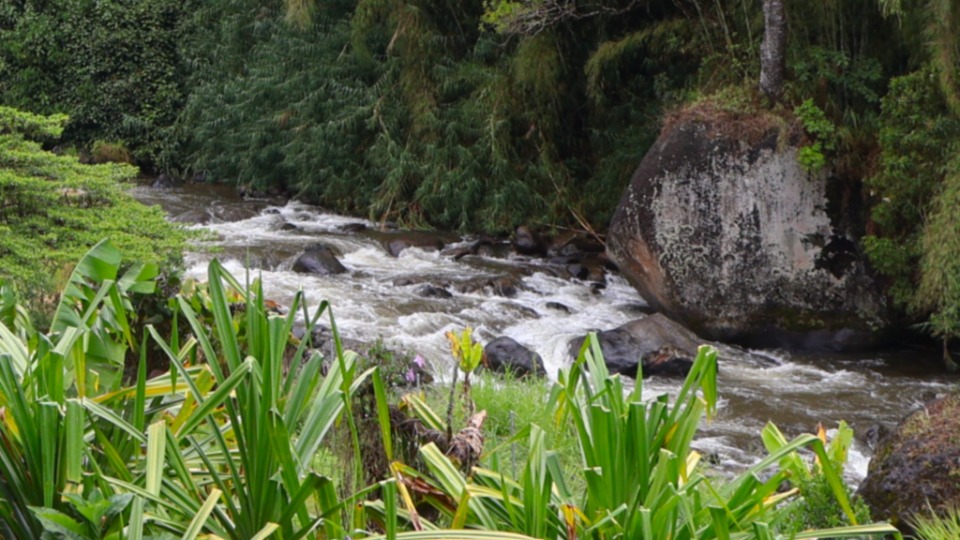
The Koningi River flows through a steep, narrow, but fertile valley in Papua New Guinea’s sparsely populated Eastern Highlands Province. Subsistence farmers who live along the river regularly divert its water to raise crops, but they also rely on the river for drinking water and for personal hygiene uses, which can sometimes spread water-borne illnesses.
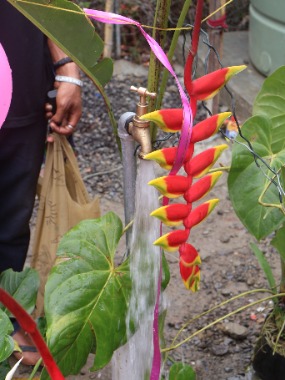
But thanks to a major water improvement project funded by The Church of Jesus Christ of Latter-day Saints, an integrated network of 26 water faucets in the communities along the river are providing reliably clean water for personal use throughout the Koningi Valley.
The water for the project originates from a powerful natural spring at the top of the mountain. Project developers say that by harnessing the spring water instead of pulling water for personal use directly from the river, water-borne illness among families living in the valley will be reduced by 70-percent.
The project required laying 3.25 kilometers of underground pipes linking the faucets without disturbing the local ecosystem, or the farms and villages situated close the river.
The pipeline project was one of the largest water projects undertaken by the Church of Jesus Christ in Papua New Guinea and took nearly six months to complete.
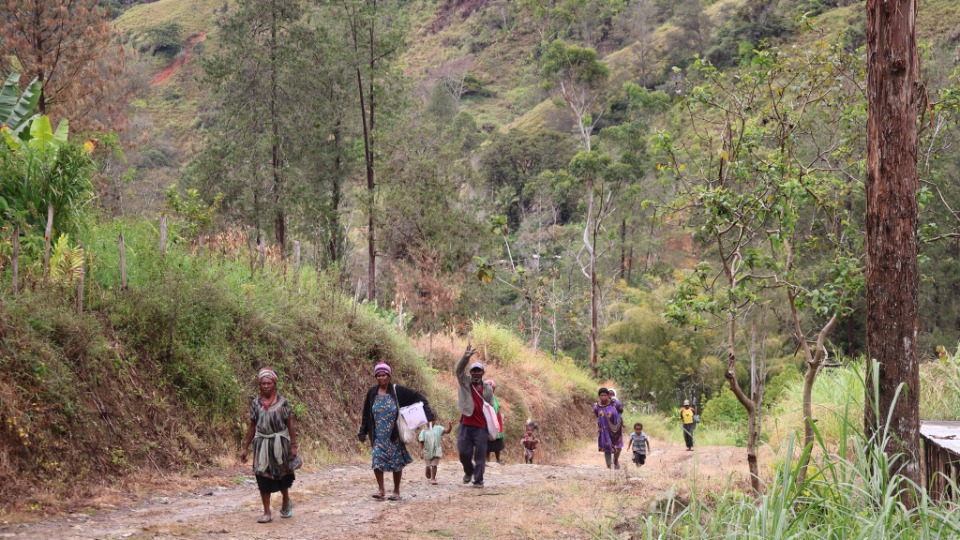
At a public ceremony on 13 October 2025, villagers from across the valley came to Konigi Village for the dedication of the new water system. At the ceremony, East Highlands Province officials thanked The Church of Jesus Christ of Latter-day Saints for funding both the design and installation of the new water system.
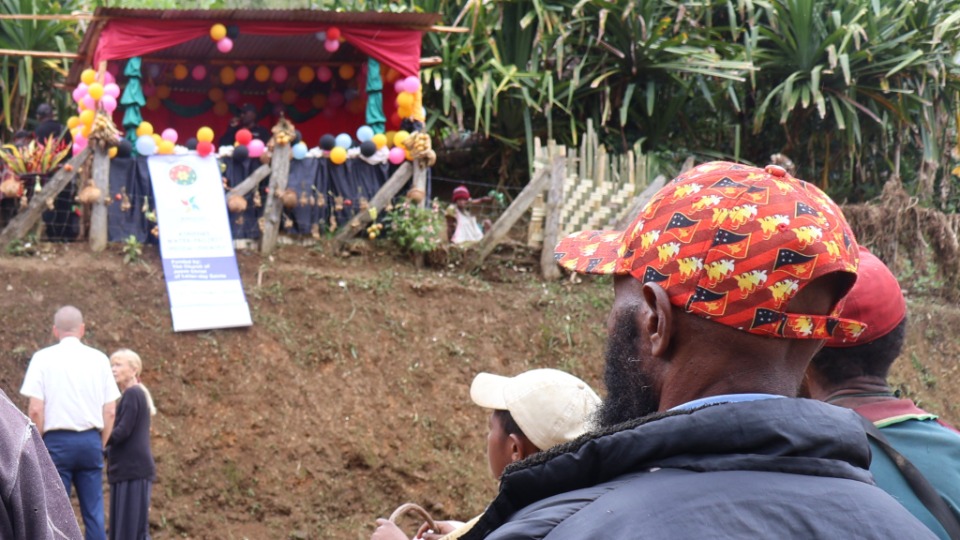
At a public ceremony on 13 October 2025, villagers from across the valley came to Konigi Village for the dedication of the new water system. At the ceremony, East Highlands Province officials thanked The Church of Jesus Christ of Latter-day Saints for funding both the design and installation of the new water system.

“This is a project we are happy to see come to this valley," President Waro said. "Clean water is important to everyone. We are very proud to help bring clean water to all of us here in the Koningi region. We want to be good neighbors with everyone, because that is what the Saviour wants us to do.”
As the faucets along the river were opened, many couldn't wait for their first drink.
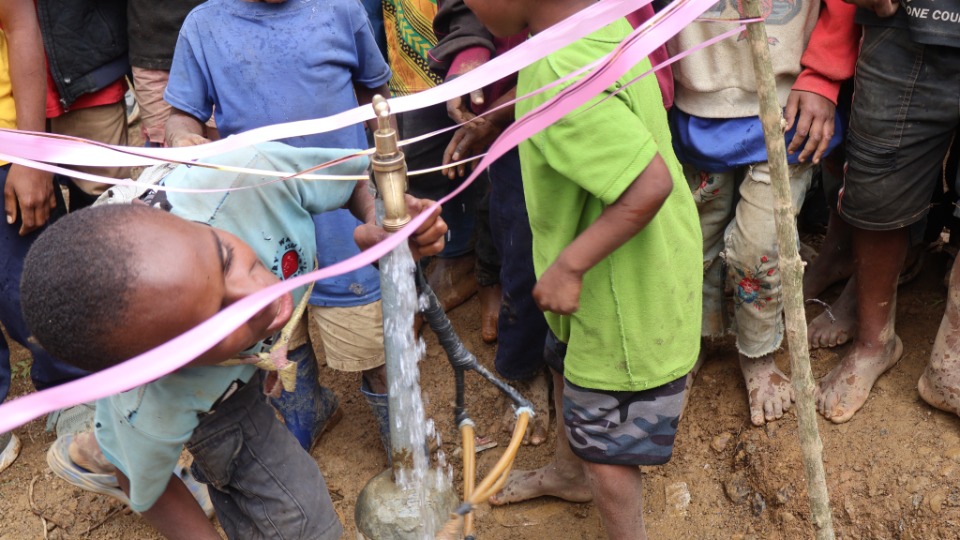
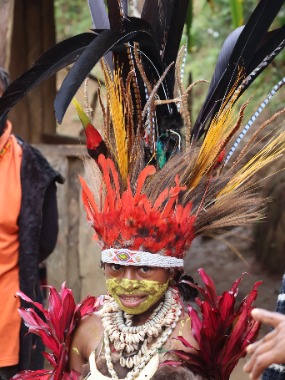
Anthropologists say the first humans to live in Papua New Guinea arrived about 50,000 years ago. Centuries of little outside contact have kept tribal traditions strong in what is now a rapidly changing cultural and physical environment.
But despite the changes, traditions remain strong, even as technology creates opportunities for a safer and cleaner world. Water systems improve, and families can take better care of their children, while still preserving ancient traditions.
The Church of Jesus Christ of Latter-day Saints is a rapidly growing faith in this developing nation, and exists side-by-side with other Christian faiths in harmony and common goodwill.
And like the villages that line the valley, the Koningi Branch of the Church of Jesus Christ also sits alongside the Koningi River; a reminder of the link between the Church, the wider community, and the river that flows through the center of it all.
